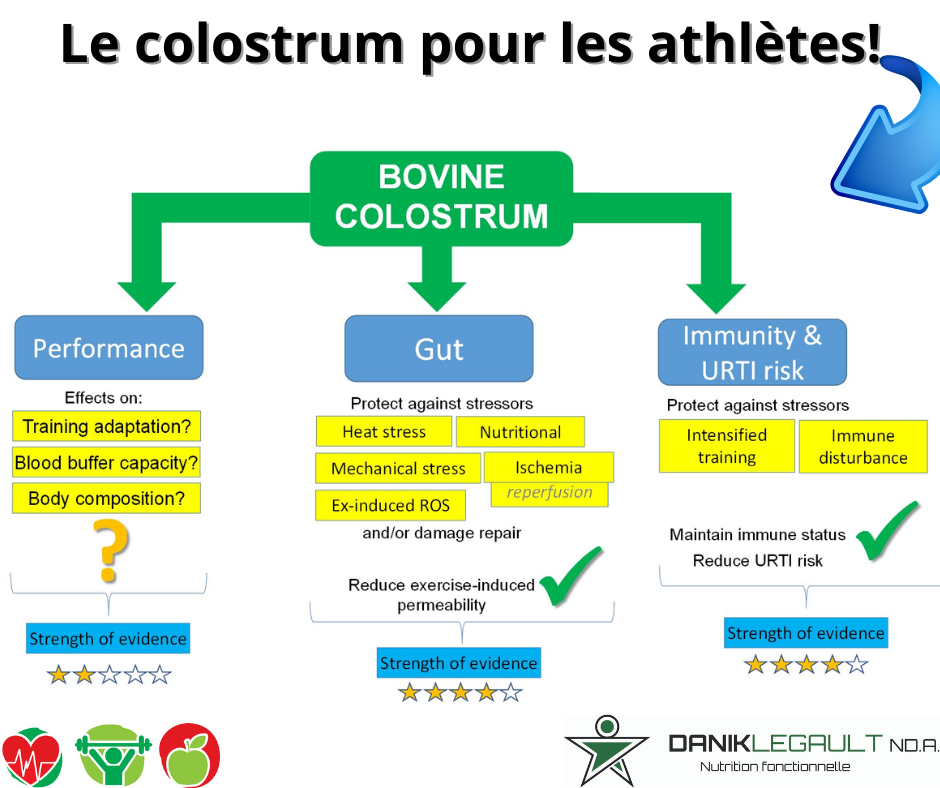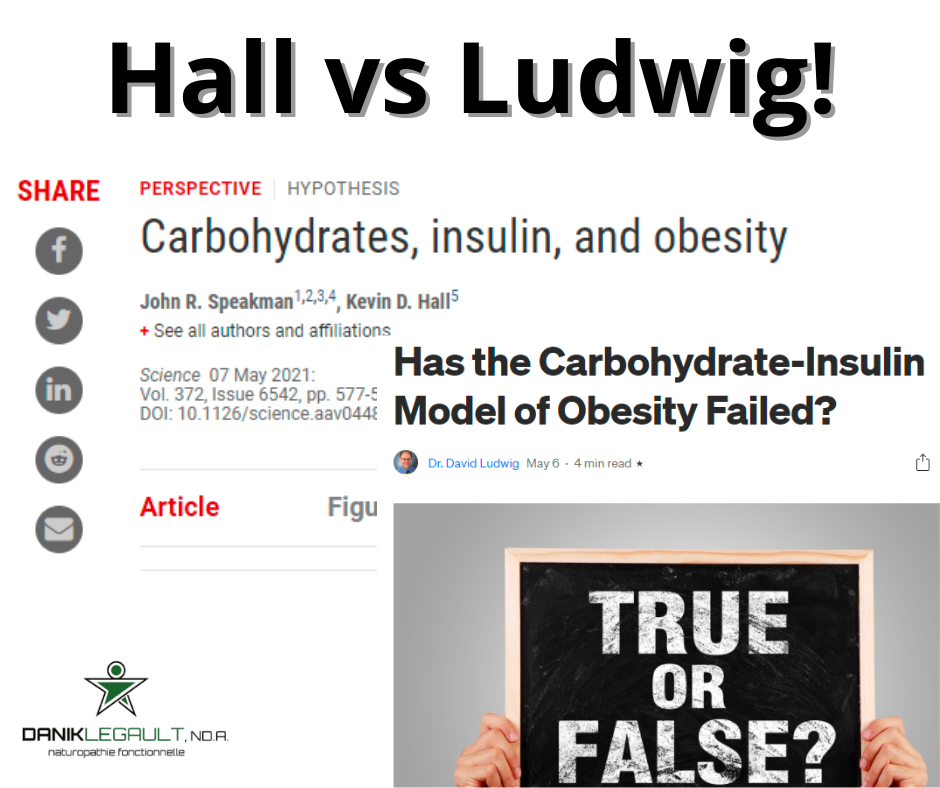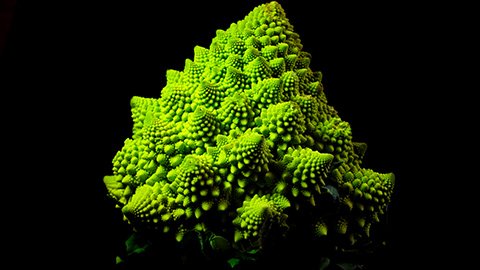Un article un peu étrange (11 septembre a Radio-Canada) : https://
Lorsqu’on voit un article du genre (basée sur la déclaration du Dr Quach), on se demande pourquoi. Quel est l’objectif?
L’article mentionne essentiellement ceci : il ne sert à rien de prendre des suppléments pour le système immunitaire, même la vitamine D est discutable. Dr Quach mentionne même que ce sont des « croyances populaires ». La seule chose à faire est de bien dormir, bien manger et faire de l’activité physique.
Personne ne peut être en désaccord avec ça par contre. Surtout pour la partie sommeil. La façon la plus rapide d’avoir un rhume ou une grippe est sans doute d’être privé de sommeil.
On dirait un message pour être en mesure de vendre plus de sirop, plus de pastilles, etc.? pour gérer les symptômes.
C’est pourtant assez simple de le tester dans la vraie vie. Lorsque vous aurez un début de rhume la prochaine fois, augmenter immédiatement vos doses de vitamine D, C, champignons et ajoutez un peu de zinc. Si c’est fait de la bonne façon (aux bonnes doses) et que c’est pris à temps, l’effet sur l’immunité est assez flagrant. Le fait de le combattre totalement en 3 ou 4 jours et de s’en sauver n’est pas quelque chose de rare.
Donc, si on le teste dans la vraie vie et que ça fonctionne, c’est possible qu’on parte à rire par la suite lorsque quelqu’un dit que ce n’est pas vrai parce qu’il n’y a pas d’études à ce sujet 😉
😉
Pourtant, le rôle de la vitamine D, A, C, du zinc, des probiotiques, de certains champignons, etc., etc. est étudié depuis longtemps :
Vitamine D : https://
« As the vitamin D receptor is expressed on immune cells (B cells, T cells and antigen presenting cells) and these immunologic cells are all are capable of synthesizing the active vitamin D metabolite, vitamin D has the capability of acting in an autocrine manner in a local immunologic milieu. Vitamin D can modulate the innate and adaptive immune responses. Deficiency in vitamin D is associated with increased autoimmunity as well as an increased susceptibility to infection. As immune cells in autoimmune diseases are responsive to the ameliorative effects of vitamin D, the beneficial effects of supplementing vitamin D deficient individuals with autoimmune disease may extend beyond the effects on bone and calcium homeostasis. »
Vitamine C : https://
« Vitamin C contributes to immune defense by supporting various cellular functions of both the innate and adaptive immune system. Vitamin C supports epithelial barrier function against pathogens and promotes the oxidant scavenging activity of the skin, thereby potentially protecting against environmental oxidative stress. Vitamin C accumulates in phagocytic cells, such as neutrophils, and can enhance chemotaxis, phagocytosis, generation of reactive oxygen species, and ultimately microbial killing. It is also needed for apoptosis and clearance of the spent neutrophils from sites of infection by macrophages, thereby decreasing necrosis/NETosis and potential tissue damage. The role of vitamin C in lymphocytes is less clear, but it has been shown to enhance differentiation and proliferation of B- and T-cells, likely due to its gene regulating effects. Vitamin C deficiency results in impaired immunity and higher susceptibility to infections. »
Zinc : https://
« The zinc-deficient patients had severe immune dysfunctions, inasmuch as they died of intercurrent infections by the time they were 25 years of age. In our studies in an experimental human model of zinc deficiency, we documented decreased serum testosterone level, oligospermia, severe immune dysfunctions mainly affecting T helper cells, hyperammonemia, neurosensory disorders, and decreased lean body mass. »
https://
« Zinc is known to play a central role in the immune system, and zinc-deficient persons experience increased susceptibility to a variety of pathogens. The immunologic mechanisms whereby zinc modulates increased susceptibility to infection have been studied for several decades. It is clear that zinc affects multiple aspects of the immune system, from the barrier of the skin to gene regulation within lymphocytes. Zinc is crucial for normal development and function of cells mediating nonspecific immunity such as neutrophils and natural killer cells. Zinc deficiency also affects development of acquired immunity by preventing both the outgrowth and certain functions of T lymphocytes such as activation, Th1 cytokine production, and B lymphocyte help. Likewise, B lymphocyte development and antibody production, particularly immunoglobulin G, is compromised. »
Vitamine A : https://
« VitA is known as an anti-inflammation vitamin because of its critical role in enhancing immune function. VitA is involved in the development of the immune system and plays regulatory roles in cellular immune responses and humoral immune processes. VitA has demonstrated a therapeutic effect in the treatment of various infectious diseases. »
Probiotiques : https://www.karger.com/
« Probiotic bacteria, their cell walls or probiotic fermented milk have significant effects on the functionality of the mucosal and systemic immune systems through the activation of multiple immune mechanisms. »
Certains champignons comme le reishi et le cordyceps entre autres : https://
« We discuss current information on the ability of extracts and isolated metabolites from mushrooms to modulate immune responses. This can result in a more enhanced innate and acquired disease resistance. The major immunomodulating effects of these active substances derived from mushrooms include mitogenicity and activation of immune effector cells, such as lymphocytes, macrophages, and natural killer cells, resulting in the production of cytokines, including interleukins (ILs), tumor necrosis factor alpha (TNF)-α, and interferon gamma (INF)-γ. In particular, the ability of selective mushroom extracts to modulate the differentiation capacity of CD4+ T cells to mature into TH1 and/or TH2 subsets will be discussed. As a consequence these extracts will have profound effects in particular diseases, like chronic autoimmune TH1-mediated or allergic TH2-mediated diseases. Immunosuppressive effects by mushroom components have also been observed. The therapeutic effects of mushrooms, such as anticancer activity, suppression of autoimmune diseases, and allergy have been associated with their immunomodulating effects. »
C’est simplement quelques exemples, il y en a par millier.
#onnepeutpasnégocieravecla
#naturopathie #santé #médecinefonctionnelle #médecineintégrative #alimentation #alimentationsaine #habitudesdevie #vivrenaturellement #bio #nutrition #pertedepoids #nutritionsportive #bienêtre #bienmanger
Lorsqu’on voit un article du genre (basée sur la déclaration du Dr Quach), on se demande pourquoi. Quel est l’objectif?
L’article mentionne essentiellement ceci : il ne sert à rien de prendre des suppléments pour le système immunitaire, même la vitamine D est discutable. Dr Quach mentionne même que ce sont des « croyances populaires ». La seule chose à faire est de bien dormir, bien manger et faire de l’activité physique.
Personne ne peut être en désaccord avec ça par contre. Surtout pour la partie sommeil. La façon la plus rapide d’avoir un rhume ou une grippe est sans doute d’être privé de sommeil.
On dirait un message pour être en mesure de vendre plus de sirop, plus de pastilles, etc.? pour gérer les symptômes.
C’est pourtant assez simple de le tester dans la vraie vie. Lorsque vous aurez un début de rhume la prochaine fois, augmenter immédiatement vos doses de vitamine D, C, champignons et ajoutez un peu de zinc. Si c’est fait de la bonne façon (aux bonnes doses) et que c’est pris à temps, l’effet sur l’immunité est assez flagrant. Le fait de le combattre totalement en 3 ou 4 jours et de s’en sauver n’est pas quelque chose de rare.
Donc, si on le teste dans la vraie vie et que ça fonctionne, c’est possible qu’on parte à rire par la suite lorsque quelqu’un dit que ce n’est pas vrai parce qu’il n’y a pas d’études à ce sujet
Pourtant, le rôle de la vitamine D, A, C, du zinc, des probiotiques, de certains champignons, etc., etc. est étudié depuis longtemps :
Vitamine D : https://
« As the vitamin D receptor is expressed on immune cells (B cells, T cells and antigen presenting cells) and these immunologic cells are all are capable of synthesizing the active vitamin D metabolite, vitamin D has the capability of acting in an autocrine manner in a local immunologic milieu. Vitamin D can modulate the innate and adaptive immune responses. Deficiency in vitamin D is associated with increased autoimmunity as well as an increased susceptibility to infection. As immune cells in autoimmune diseases are responsive to the ameliorative effects of vitamin D, the beneficial effects of supplementing vitamin D deficient individuals with autoimmune disease may extend beyond the effects on bone and calcium homeostasis. »
Vitamine C : https://
« Vitamin C contributes to immune defense by supporting various cellular functions of both the innate and adaptive immune system. Vitamin C supports epithelial barrier function against pathogens and promotes the oxidant scavenging activity of the skin, thereby potentially protecting against environmental oxidative stress. Vitamin C accumulates in phagocytic cells, such as neutrophils, and can enhance chemotaxis, phagocytosis, generation of reactive oxygen species, and ultimately microbial killing. It is also needed for apoptosis and clearance of the spent neutrophils from sites of infection by macrophages, thereby decreasing necrosis/NETosis and potential tissue damage. The role of vitamin C in lymphocytes is less clear, but it has been shown to enhance differentiation and proliferation of B- and T-cells, likely due to its gene regulating effects. Vitamin C deficiency results in impaired immunity and higher susceptibility to infections. »
Zinc : https://
« The zinc-deficient patients had severe immune dysfunctions, inasmuch as they died of intercurrent infections by the time they were 25 years of age. In our studies in an experimental human model of zinc deficiency, we documented decreased serum testosterone level, oligospermia, severe immune dysfunctions mainly affecting T helper cells, hyperammonemia, neurosensory disorders, and decreased lean body mass. »
https://
« Zinc is known to play a central role in the immune system, and zinc-deficient persons experience increased susceptibility to a variety of pathogens. The immunologic mechanisms whereby zinc modulates increased susceptibility to infection have been studied for several decades. It is clear that zinc affects multiple aspects of the immune system, from the barrier of the skin to gene regulation within lymphocytes. Zinc is crucial for normal development and function of cells mediating nonspecific immunity such as neutrophils and natural killer cells. Zinc deficiency also affects development of acquired immunity by preventing both the outgrowth and certain functions of T lymphocytes such as activation, Th1 cytokine production, and B lymphocyte help. Likewise, B lymphocyte development and antibody production, particularly immunoglobulin G, is compromised. »
Vitamine A : https://
« VitA is known as an anti-inflammation vitamin because of its critical role in enhancing immune function. VitA is involved in the development of the immune system and plays regulatory roles in cellular immune responses and humoral immune processes. VitA has demonstrated a therapeutic effect in the treatment of various infectious diseases. »
Probiotiques : https://www.karger.com/
« Probiotic bacteria, their cell walls or probiotic fermented milk have significant effects on the functionality of the mucosal and systemic immune systems through the activation of multiple immune mechanisms. »
Certains champignons comme le reishi et le cordyceps entre autres : https://
« We discuss current information on the ability of extracts and isolated metabolites from mushrooms to modulate immune responses. This can result in a more enhanced innate and acquired disease resistance. The major immunomodulating effects of these active substances derived from mushrooms include mitogenicity and activation of immune effector cells, such as lymphocytes, macrophages, and natural killer cells, resulting in the production of cytokines, including interleukins (ILs), tumor necrosis factor alpha (TNF)-α, and interferon gamma (INF)-γ. In particular, the ability of selective mushroom extracts to modulate the differentiation capacity of CD4+ T cells to mature into TH1 and/or TH2 subsets will be discussed. As a consequence these extracts will have profound effects in particular diseases, like chronic autoimmune TH1-mediated or allergic TH2-mediated diseases. Immunosuppressive effects by mushroom components have also been observed. The therapeutic effects of mushrooms, such as anticancer activity, suppression of autoimmune diseases, and allergy have been associated with their immunomodulating effects. »
C’est simplement quelques exemples, il y en a par millier.
#onnepeutpasnégocieravecla
#naturopathie #santé #médecinefonctionnelle #médecineintégrative #alimentation #alimentationsaine #habitudesdevie #vivrenaturellement #bio #nutrition #pertedepoids #nutritionsportive #bienêtre #bienmanger















